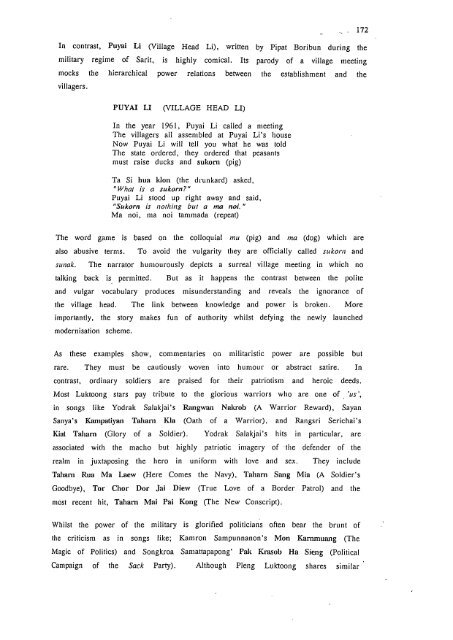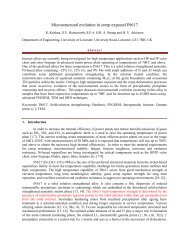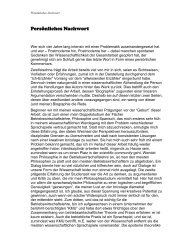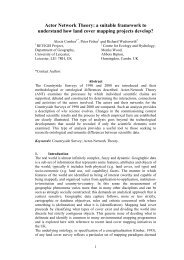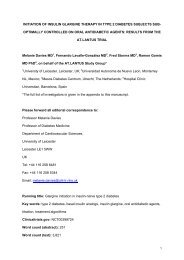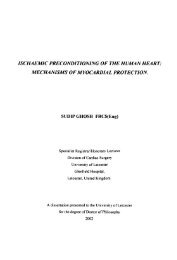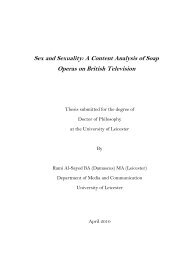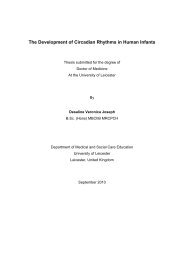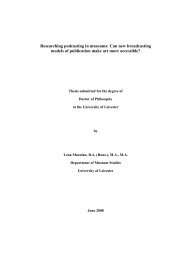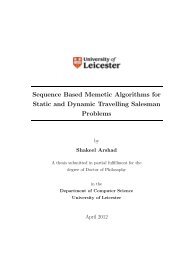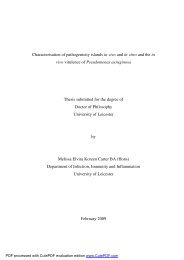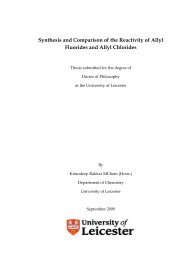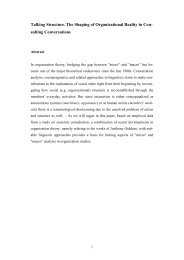iieiiei1eWrkers - Leicester Research Archive - University of Leicester
iieiiei1eWrkers - Leicester Research Archive - University of Leicester
iieiiei1eWrkers - Leicester Research Archive - University of Leicester
You also want an ePaper? Increase the reach of your titles
YUMPU automatically turns print PDFs into web optimized ePapers that Google loves.
In contrast, Puyai Li (Village Head Li), written by Pipat Boribun during the<br />
military regime <strong>of</strong> Sarit, is highly comical. Its parody <strong>of</strong> a village meeting<br />
mocks the hierarchical power relations between the establishment and the<br />
villagers.<br />
PUYAI LI (VILLAGE HEAD LI)<br />
In the year 1961, Puyai Li called a meeting<br />
The villagers all assembled at Puyai Li's house<br />
Now Puyai Li will tell you what he was told<br />
The state ordered, they ordered that peasants<br />
must raise ducks and sukorn (pig)<br />
Ta Si hua klan (the drunkard) asked,<br />
What is a sukorn?"<br />
Puyai Li stood up right away and said,<br />
"Sukorn is nothing but a ma noi."<br />
Ma noi, ma noi tammada (repeat)<br />
The word game is based on the colloquial mu (pig) and ma (dog) which are<br />
also abusive terms. To avoid the vulgarity they are <strong>of</strong>ficially called sukoriz and<br />
sunak. The narrator humourously depicts a surreal village meeting in which no<br />
talking back is permitted. But as it happens the contrast between the polite<br />
and vulgar vocabulary produces misunderstanding and reveals the ignorance <strong>of</strong><br />
the village head. The link between knowledge and power is broken. More<br />
importantly, the story makes fun <strong>of</strong> authority whilst defying the newly launched<br />
modernisation scheme.<br />
As these examples show, commentaries on militaristic power are possible but<br />
rare. They must be cautiously woven into humour or abstract satire. In<br />
contrast, ordinary soldiers are praised for their patriotism and heroic deeds.<br />
Most Luktoong stars pay tribute to the glorious warriors who are one <strong>of</strong> 'us',<br />
in songs like Yodrak Salakjai's Rangwan Nakrob (A Warrior Reward), Sayan<br />
Sanya's Karnpatiyan Taharn KIa (Oath <strong>of</strong> a Warrior), and Rangsri Serichai's<br />
Kiat Taharn (Glory <strong>of</strong> a Soldier). Yodrak Salakjai's hits in particular, are<br />
associated with the macho but highly patriotic imagery <strong>of</strong> the defender <strong>of</strong> the<br />
realm in juxtaposing the hero in uniform with love and sex. They include<br />
Taharn Rua Ma Laew (Here Comes the Navy), Taharn Sang Mm (A Soldier's<br />
Goodbye), Tor Char Dor Jai Diew (True Love <strong>of</strong> a Border Patrol) and the<br />
most recent hit, Taharn Mai Pai Kong (The New Conscript).<br />
Whilst the power <strong>of</strong> the military is glorified politicians <strong>of</strong>ten bear the brunt <strong>of</strong><br />
the criticism as in songs like; Kamron Sampunnanon's Mon Karnmuang (The<br />
Magic <strong>of</strong> Politics) and Songkroa Samattapapong' Pak Krasob Ha Sieng (Political<br />
Campaign <strong>of</strong> the Sack Party). Although Pleng Luktoong shares similar<br />
172


